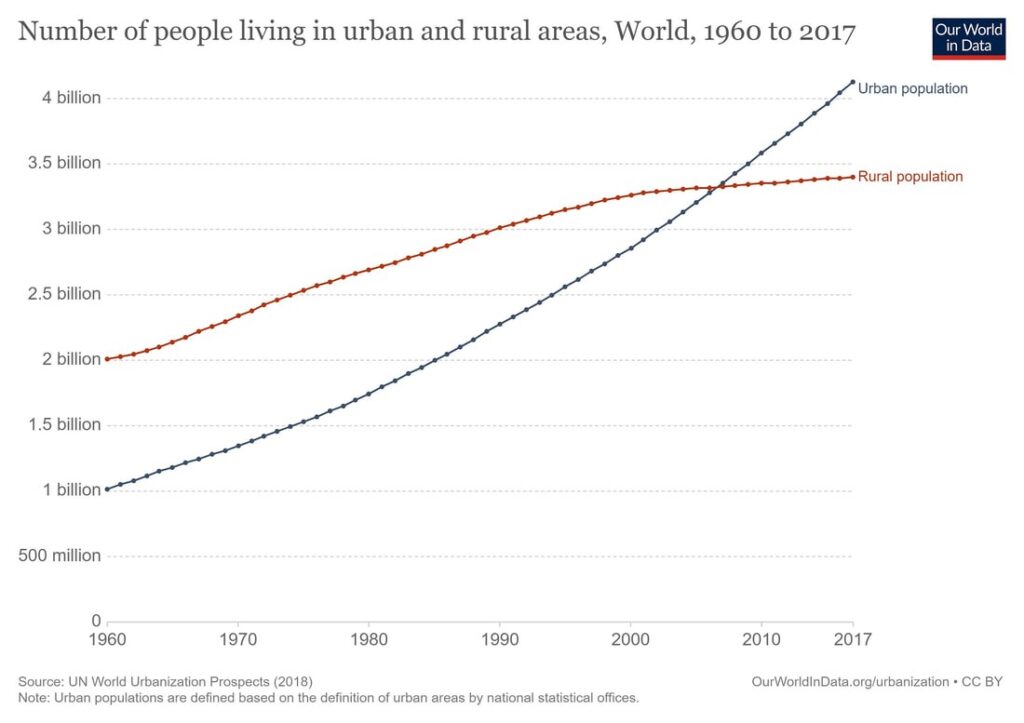
Kicking Private Cars to the Curb


Graph, sourced from Our World in Data, showing the number of people living in urban and rural areas world-wide between 1960 and 2017.
There is a global move towards removing large highways and turning them into green spaces which collaborate with pedestrian walkways to combat traffic and congestion. The added benefit to this is the creation of a natural carbon ‘sink’ that cools down the temperatures in the cities. These new adaptations enable and encourage alternative transportation manners, such as walking or cycling. The World Cities Report 2020 stated that the COVID-19 pandemic has promoted health as being the new guiding principle in urban planning and governance, invoking innovations in cities to close streets for cars and, instead, opening them to people to allow more room to walk, cycle and dine.
Jane Jacobs, journalist, author, theorist, and activist who influenced urban studies, sociology, and economics said, “Lowly, unpurposeful, and random as they may appear, sidewalks contacts are the small change from which a city’s wealth of public life may grow.”
Where most cities pay for their roads through tax payments there are countries, such as South Africa, where it is common practice to pay for a toll gate when driving on highways to pay for maintenance and upgrading of the roads. One could say that the citizen’s need to pay for roads is a push towards discarding private transport.
Elon Musk said, “We always want our future to be better than our past.”
This is just the beginning of where our cities are heading. The reality is that most cities cannot jump into rapid change, and would have to follow in Copenhagen’s footsteps of incremental adaptation to safer and more frequent public transport. Research has reported that cities which partake in car-free days have had up to a 40% reduction in Nitrogen Dioxide (NO2) levels.
Amsterdam is another formidable city that is taking action on making a change from the traditional transportation methods. They are focusing on carefully and gradually reducing car traffic by removing 11,200 parking spots by 2025 replacing that space with sidewalks and bike lanes, as well as providing space for trees to be planted. Fast company stated that Amsterdam will ban gas and diesel vehicles by 2030, encouraging all car users to shift towards electric cars.
The introduction of private car-free cities is likely to have direct and indirect health benefits worldwide. With the myriad benefits that the removal of excess vehicles will have on the planet, we only hope that more cities follow suit and start the transition into accessible and sustainable modes of transport.




